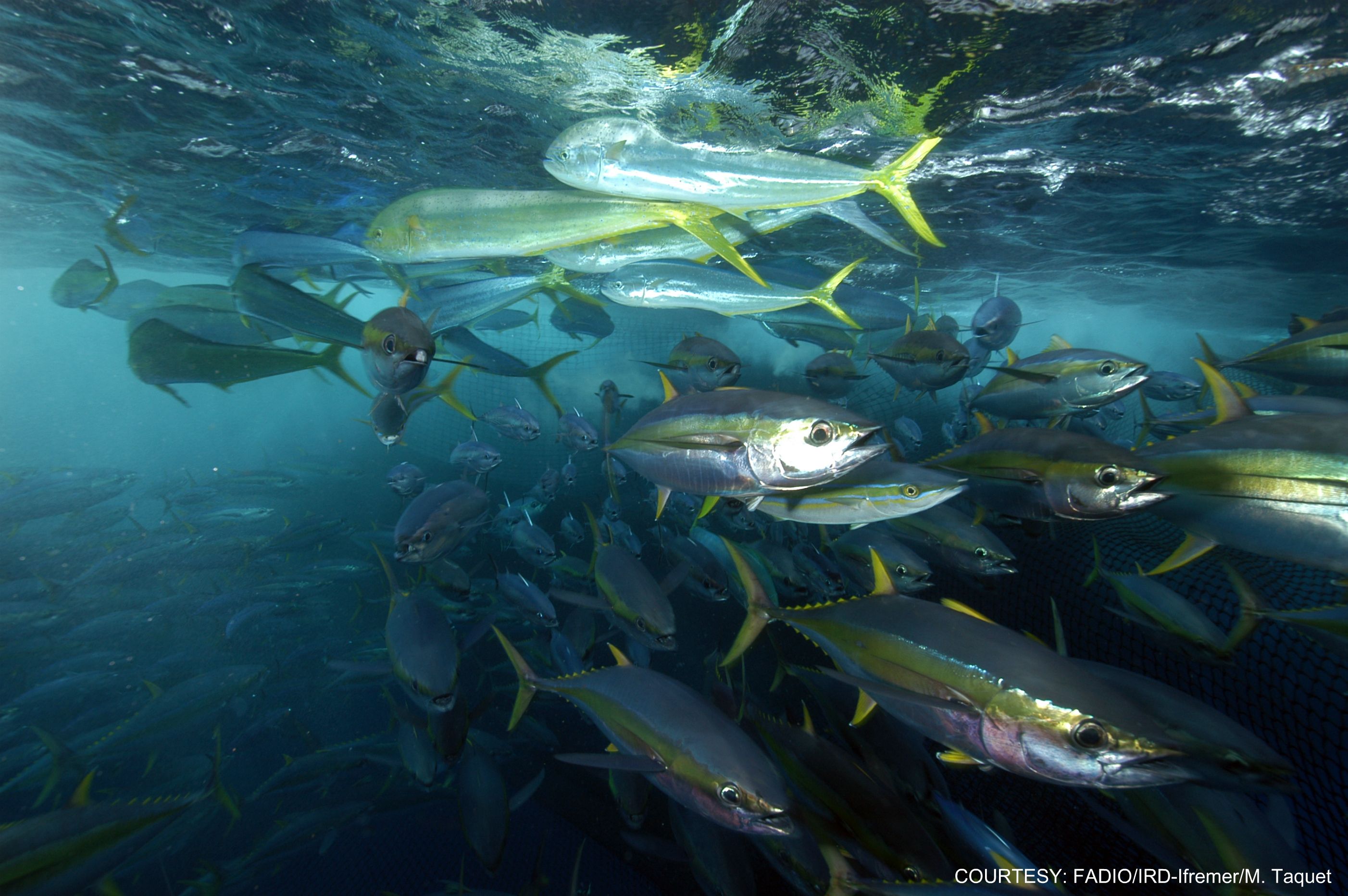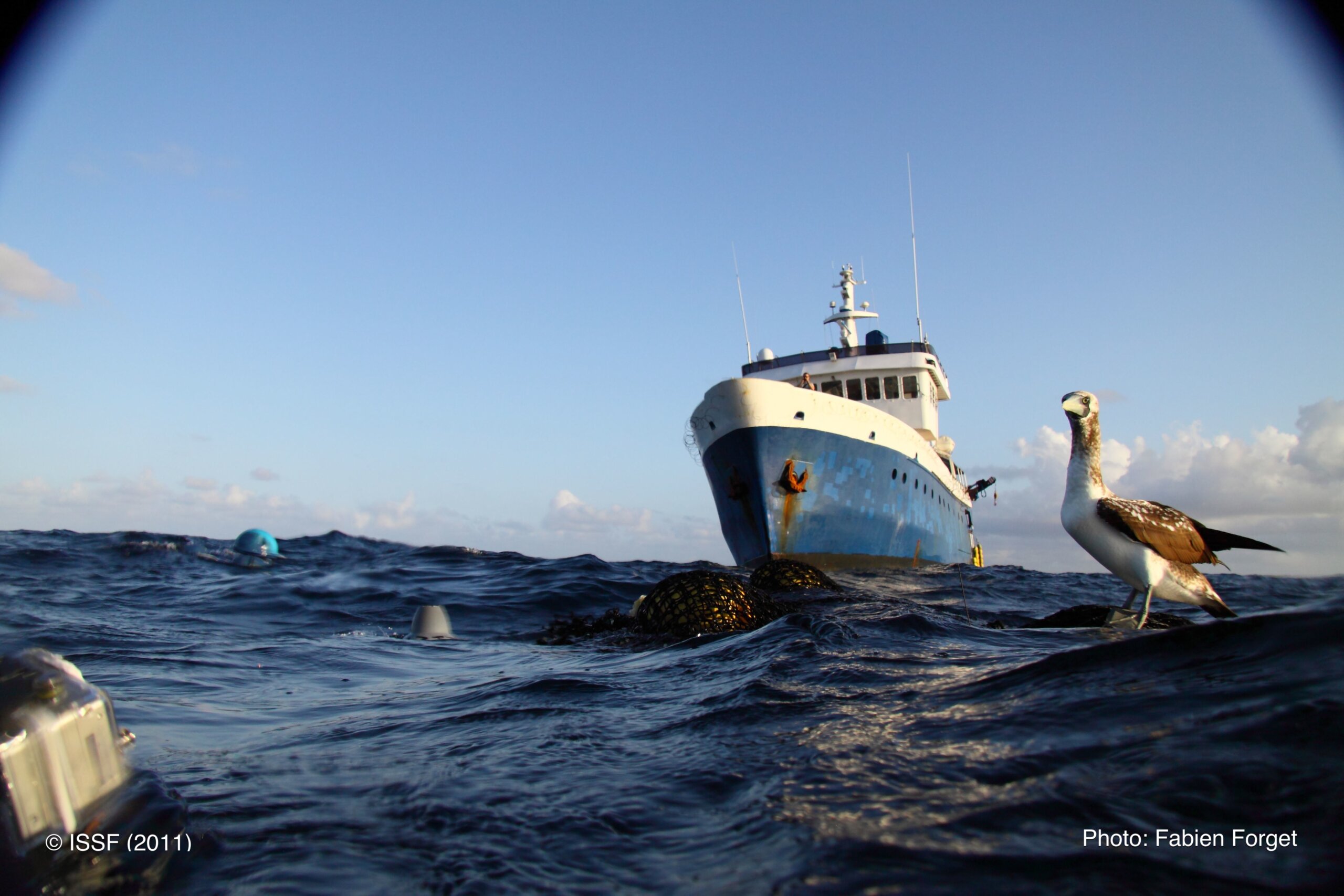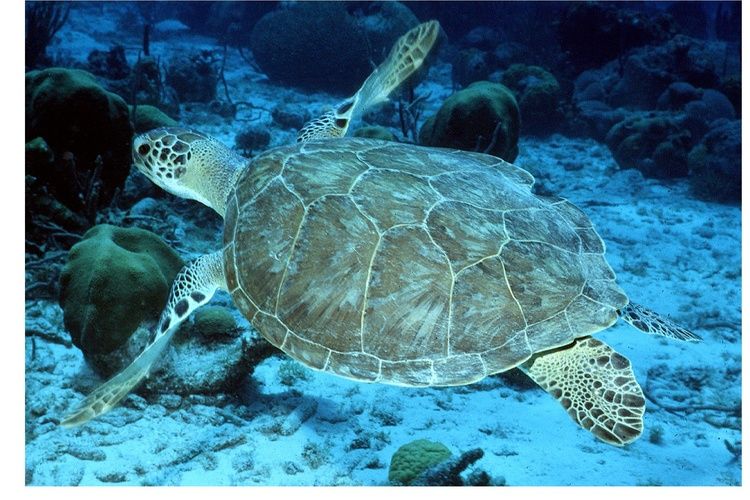
ISSF Calls on Indian Ocean Tuna Commission to Address Member Non-Compliance and Improve FAD Management and Tuna Conservation Measures for Yellowfin, Bigeye, and Skipjack
The International Seafood Sustainability Foundation (ISSF) has issued its position statement ahead of the Indian Ocean Tuna Commission (IOTC) 27th Annual Meeting to be held May 8-12, 2023. The statement outlines key issues ISSF urges the Commission to act on, including adopting stronger conservation measures to protect yellowfin, skipjack, and bigeye tuna stocks, as well as shark, cetacean, and sea turtle populations, strengthening the management of fish aggregating devices (FADs), and addressing non-compliance by member states.
“The IOTC has a critical role to play in ensuring the long-term sustainability of Indian Ocean tuna stocks and marine ecosystems. Member governments of the IOTC must cooperate to adopt critical tuna and FAD management measures, as well as tackle member non-compliance, to protect these valuable marine resources for future generations,” said ISSF President Susan Jackson. “It is also time for the IOTC to take long overdue action to modernize its bycatch mitigation and shark management measures.”
Our position statement outlines ISSF's priorities for IOTC action at its upcoming May meeting. Share on XTuna Stock Conservation
ISSF calls on managers to reduce yellowfin tuna catches by at least 22 percent, relative to the 2020 level, following the latest IOTC Scientific Committee (SC) management advice. Additionally, ISSF urges the Commission to ensure that skipjack catches in 2023 do not exceed the limit set by the related harvest control rule (HCR) and that bigeye catches do not exceed the limit set by its Management Procedure.
Compliance Processes
ISSF is also calling for the IOTC Compliance Committee to address IOTC member states and parties’ non-compliance, specifically with mandatory fishery and fish aggregating device (FAD) data; catch and FAD limits; and the use of gillnets. The organization also urges IOTC to require the submission of action plans that address identified non-compliance. ISSF and Pew Charitable Trusts have recommendations to improve RFMO compliance processes, which can be found in these Workshop reports: 2020 report, 2021 report, 2022 report and a Toolkit to Evaluate and Improve RFMO Compliance Process.
FAD Management
ISSF asks the IOTC to build upon its existing Management of Drifting Fish Aggregating Devices (FADs) resolution by expanding measures that improve FAD management. This expansion includes requiring that IOTC SC provide advice on FAD management options — such as the efficacy of FAD closures and expected reductions of juvenile and total catch of tropical tunas in comparison to the contribution of those gears not part of the FAD fishery.
The ISSF position statement also calls for the reporting of complete FAD acoustic biomass records from echosounder buoys for scientific use, as well as clearer rules for FAD activation and deactivation of FAD buoys.
Bycatch Mitigation and Shark Protections
ISSF requests IOTC to require that shark fins be naturally attached for all landings. The IOTC must adopt measures to limit fishing mortality on sharks based on IOTC SC recommendations and amend outdated sea turtle and seabird conservation resolutions to include best-practice mitigation techniques.
Electronic Monitoring and Reporting & Observer Coverage
Finally, ISSF appeals to the IOTC to adopt electronic monitoring (EM) terms and definitions, EM Program Standards and EM Data Standards, based on the recommendations of the IOTC Scientific Committee. IOTC is behind its peers in observer coverage rates, currently requiring just 5% observer coverage regardless of gear type or area of operation. Comprehensive and higher levels of observer coverage are critical to effective fisheries management; compliance monitoring; and independent verification of catch, effort, and non-target species interactions.
Download the complete 2023 ISSF IOTC position statement here. The ISSF position statement is also available in French.


